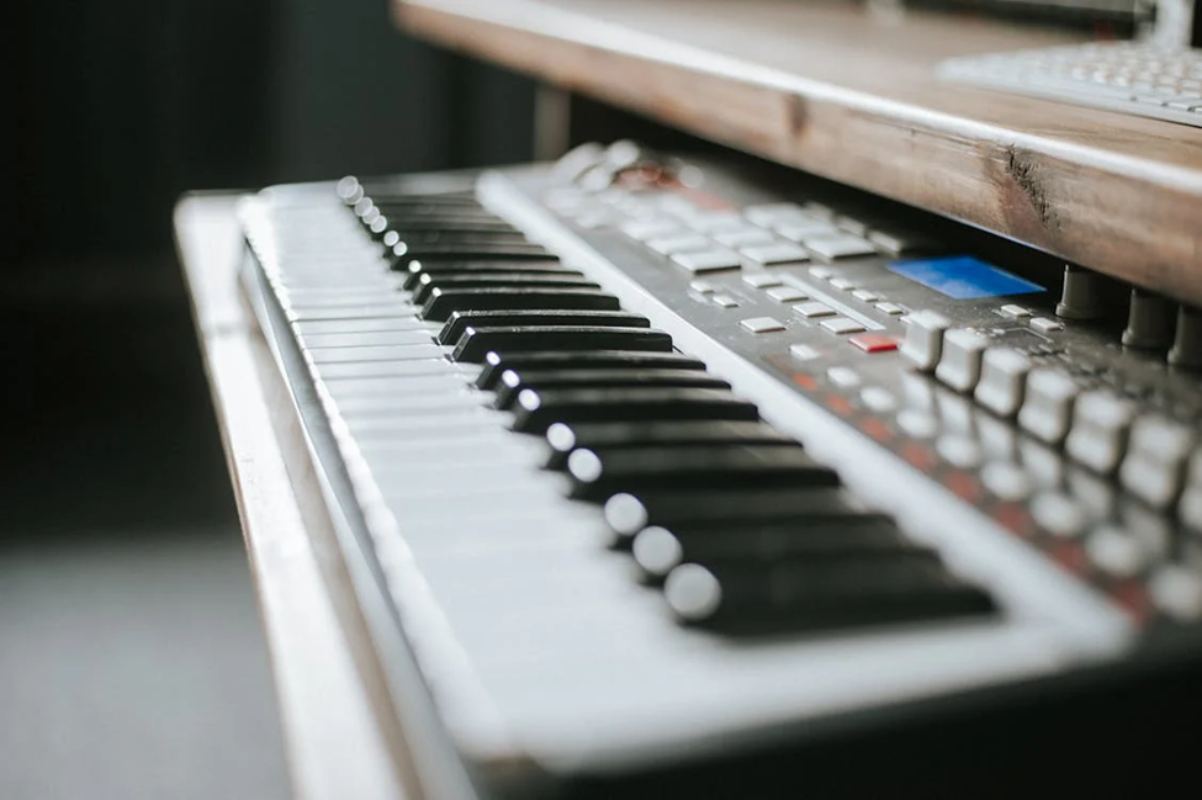Getting into music as a beginner has never been easier. With so many devices designed to make music accessible to everyone, you don’t need a fancy studio or years of experience to start creating. Whether you’re just learning an instrument or testing your skills at recording, here are five must-have, user-friendly devices that can take your musical journey to the next level.
Table of Contents
1. Digital Audio Interface
A digital audio interface is a fantastic tool that bridges your instrument and computer, allowing you to record, play, and edit music at home. For amateurs, interfaces like the Focusrite Scarlett or PreSonus AudioBox are beginner-friendly and can easily connect instruments like guitars, microphones, and keyboards to a computer. Just plug your instrument into the interface, and the interface into your computer – then, voilà, you’re ready to record!
Audio interfaces also help with sound quality. By connecting directly to an interface, you get clear, high-quality sound without much interference. This setup is perfect for those starting with basic recording but wanting a professional sound. Plus, with the right software, you can add effects, adjust levels, and even mix your own tracks, all from the comfort of home.
2. MIDI Keyboard Controller
If you’re an amateur musician wanting to experiment with creating beats, melodies, or even composing songs, a MIDI keyboard controller is a great way to start. MIDI keyboards are different from regular keyboards because they don’t produce sound on their own.
Instead, they send signals to your computer, which you can use to trigger sounds from music software. This setup gives you access to thousands of virtual instruments – drums, pianos, synthesizers, and more – all in one device.
The Novation Launchkey and Akai MPK Mini are popular choices for beginners. They’re compact, easy to set up, and come with software packages like Ableton Live, which are intuitive for newbies. MIDI keyboards often come with additional features like drum pads, faders, and knobs, so you can control your music without touching your computer. This versatility opens up new creative possibilities, allowing you to experiment with sounds and even start learning music production.
3. Portable Digital Recorder
For the musician on the go, a portable digital recorder is a valuable device. These recorders are small, affordable, and incredibly easy to use. Devices like the Zoom H1n or Tascam DR-05X offer high-quality stereo recording in a compact form. They’re perfect for capturing ideas quickly, recording jam sessions, or even getting ambient sounds that you might want to incorporate into a track.
A digital recorder also gives you freedom beyond your computer. With a recorder, you can capture sounds anywhere, from parks to concerts, without needing a laptop. You can also plug in a microphone or line-in instrument for even more recording options. Once you’ve recorded something, simply transfer the file to your computer, where you can edit, enhance, or even add effects using your favorite software.
4. USB Microphone
For amateurs interested in vocals or creating podcasts, a USB microphone is a fantastic device that’s affordable and requires minimal setup. Unlike traditional microphones that need an audio interface or mixer, USB mics plug directly into your computer, making them incredibly convenient for home recording. Popular models like the Blue Yeti or Audio-Technica ATR2100x are user-friendly, portable, and produce surprisingly high-quality sound for their price.
A good USB microphone can be used for more than just recording vocals. You can use it to record acoustic instruments, narration, or even sample unique sounds from around your home to add character to your music. USB microphones are compatible with almost any recording software, so once you’re ready to edit, you can easily drag and drop your recordings into a program and start fine-tuning.
5. Studio Monitors Or Headphones
When you’re creating music, how you hear it matters. Regular speakers or earphones aren’t designed to reproduce every detail in sound, meaning some parts of your music could sound different on different devices.
That’s where studio monitors or professional headphones come in. These devices provide a “flat” sound, which means they don’t boost bass or treble, giving you an accurate idea of how your music truly sounds.
If you’re just getting started, studio headphones like the Audio-Technica ATH-M50x or Sony MDR-7506 are excellent choices. They’re portable, comfortable for long sessions, and offer fantastic sound quality for their price. If you’re working at home and have a dedicated space, you might also consider investing in a pair of small studio monitors like the KRK Rokit 5s. These offer clear, balanced sound, perfect for mixing and mastering your music.
Conclusion
Getting started in music doesn’t require a full studio or complicated gear. With these five devices, you have the essentials for recording, editing, and even producing high-quality music right from your home. Each of these tools is designed to be beginner-friendly, so you can get started without a steep learning curve. And remember, as you grow as a musician, you can always build on these essentials with more advanced equipment.
Apart from that, just stay focused on your talent and don’t forget to turn to experts when you need some high-quality electronics repair.

